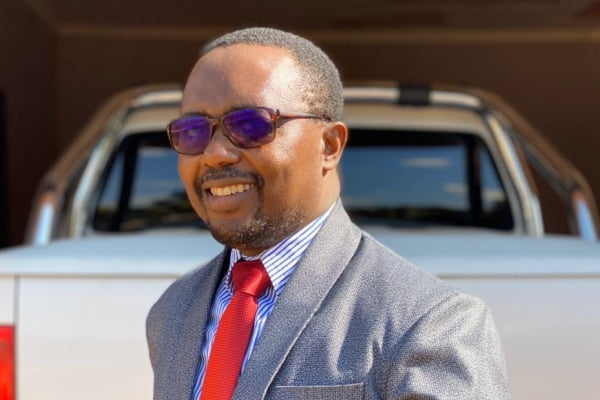During the interview with Mining Zimbabwe Magazine previously, I hinted at our commitment to keep updating the mining community regarding the Parliamentary Portfolio Committee on Mines and Mining Development business.
By Edmond Mkaratigwa
The Portfolio Committee henceforth referred to as the Committee is concerned with the delays in completion of the Draft Mines and Minerals Amendment Bill. That Bill was returned to Parliament by The President of the Republic of Zimbabwe, His Excellency Cde E. D. Mnangagwa. By way of background, along with the separation of powers doctrine continuum of practice, Zimbabwe’s parliamentarianism is located on the extreme hybrid side known as Semi-Presidentialism. In this New Dispensation, the Select or Portfolio Committees as delegates of the Committee of the Whole House are fighting to regain parliament’s space that had become over-stepped by the former executive.
In brief, the Bill was returned to Parliament without the Presidential Assent because of a number of reasons. Those include the need for our laws to align with aspirations of the New Dispensation as articulated in the Vision 2030 strategy. Further, the interim milestone of achieving the US$12 billion mining sector target by 2023 is to a greater extent tied to the imperative legal framework. As a result, the Committee held an inquiry on 14th July 2020 seeking an explanation on the progress made towards completion of the Draft Mines and Minerals Amendment Bill that is anticipated to give further impetus to the fight against corruption and towards addressing mining title disputes which are a reflection of lack of transparency and accountability in the sector.
That Inquiry has been a follow-up on resolutions that were arrived at in Kariba in 2019. There the Committee together with its stakeholders agreed to have completed working on the Mines and Minerals Amendment Bill by 20th October 2019. The work is supposed to lead to the Use It or Lose it Principle but no significant strides have been made regarding finalising the draft Bill. It appears the Bill is being overtaken by other newer Bills in terms of prioritisation hence the Committee is unhappy with the slow pace and level of seriousness with which the Bill is being treated. Having noted the snail’s pace with which the process is moving, the Committee even established a Steering Committee to ensure agreed deadlines would be met according to schedule but alas, the yields are not pleasing due to limited successes on the part of government’s drafting organ that is mainly citing human resource inadequacy.
The Committee is engaging its stakeholders once more with the intention of revitalising the target, recommitting and guaranteeing that clogs are removed along the way towards achieving the mining sector vision which should progressively inspire more confidence to investors for the public good.
Parliament is ready and the President in his State of the Nation Address during the Official Opening of Parliament chanted the legislative agenda through which Parliament as the midwife in that regard is itching to have the long-awaited Bill finalised. The Committee has therefore rescheduled another planning Indaba to make sure that this time around the frustrations witnessed to date do not happen again. Last week the committee engaged its stakeholders through a workshop that was held in Mutare and success in having the Bill brought back to Parliament is all the committee expects to yield. Our approach as a Committee has been that of communication, negotiation, and continuous engagement on the aspect of the Bill and other issues such as corruption and inefficiency which appear to be untimid. Adequate time, room, and lenience has been extended to key stakeholders and thenceforward behold the Committee is now flexing its muscles.
Parliament as an agency made up of the agents (parliamentarians) is usually as strong as its membership. The agents are in addition as powerful as their host institution, institutional limitations, and flexibilities, as well as the competing principals’ support mechanisms and disincentives. The main principals for parliamentarians are the electors as well as the different delegator agencies. Both groups agree that one of the primary foundation blocks for Zimbabwe’s economic development lies to a greater extent in the mining sector. Many times the Committee has also noted and reiterated the need for urgent implementation of the Computerised Cadastre System whose key is the Bill that the Committee is also pushing among other advocacy groups. That Bill has the potential to promote both small scale and large scale miners as well as peggers who are complementarily the backbone of the mining industry in Zimbabwe.
The institution of Parliament as the agency has supported the Committee to the extent that when budgets had dwindled and during the initial COVID-19 lockdown period, it was given the green light to always sit while most of the committees’ business was in suspension. There is again a time when Parliament’s Budget was dwindling and the Committee on Mines’ business and in particular resources for public inquiries on the Mines and Minerals Amendment Bill were set aside and the draft program was already approved. Those are the inconveniences suffered by the Committee and Parliament as the main Committee. Such bounded rationality is common with agents but the cost is cascading to the electorate and to the dignity of the whole House which this Committee among others should redeem through continuous initiative and reverting to other more effective and coercive options at its disposal exceedingly above mere verbose and perceived babelism.
Parliamentarianism is an old concept but with the new challenges and demands placed on parliamentarians as agents of the masses who form part of the electors and appointors, old traditions may act like the biblical new wine in old skins which may not always remain sustainable. The economic challenges facing the country like the king’s business further requires haste and the Committee has gathered momentum to succeed in this collective national ambition to grow the economy. The importance of the urgent development, approval, and operationalisation of this law cannot be overemphasised. Its significance is being echoed in all platforms. The significance includes the notable room for protecting private property rights of both large scale and growing or former small scale mines which we hope are not static but transitioning, and the regulation of often adverse farmer miner property rights relationship.
This article first appeared in the August 2020 issue of the Mining Zimbabwe Magazine





